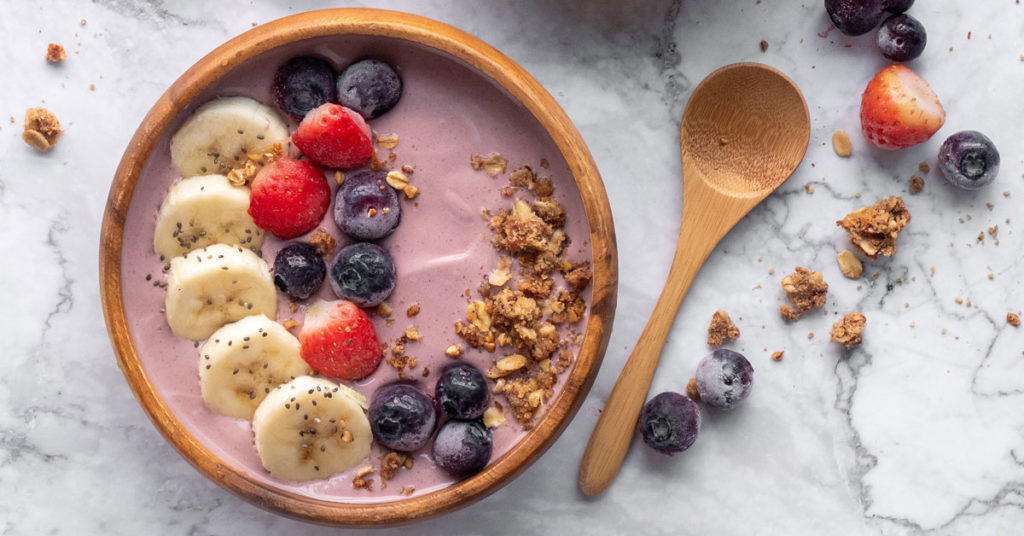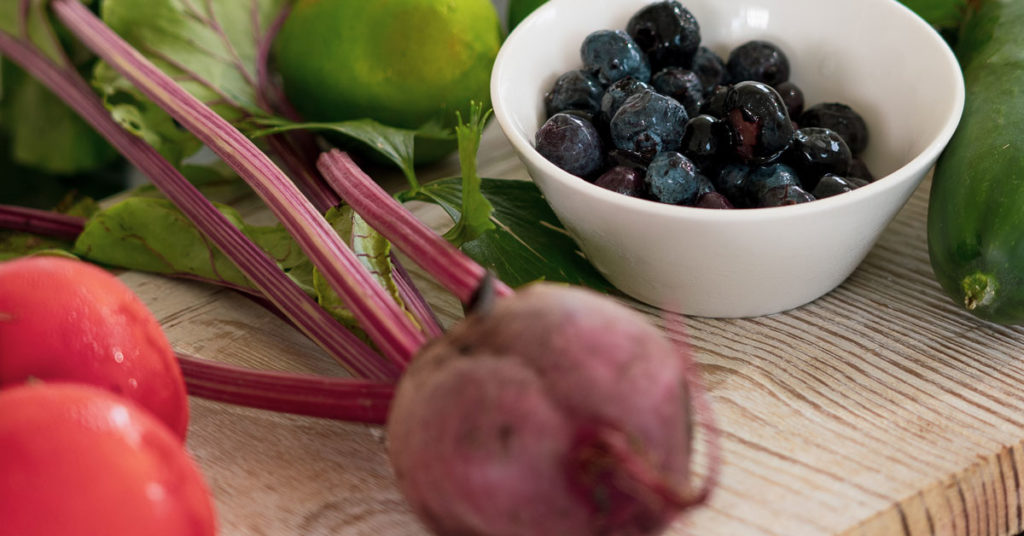
Can you strengthen your immune system with foods?
Can you actually strengthen your immune system via foods and supplements? No – you will not boost immunity by eating a large quantity of any one single nutrient or food. Yes, what we eat is important. The interplay of many different micronutrients coming together like vitamin C, vitamin D, vitamin B complex, zinc and selenium that can help “boost” the body’s defenses against the common cold, flu and even Covid-19 are important. But it is not just about food, so focusing on “superfoods” may not be the way to think about this.
Our stress levels, the amount and quality of sleep we get nightly, as well as regular movement also factor into the equation. These lifestyle components are vital in helping to support our immunity and our weight. Without these pieces in place, our body is working harder to ward off invaders, and it may even lose the fight if weakened. Managing our weight becomes more difficult if we are spiking stress hormones in the body like cortisol. Moreover, irregular sleep makes you more prone to sugar and fat cravings.
In the case of the Covid-19 virus, according to Dr. David Katz, founder and president of True Health Initiative, “The best defense against the acute threat of the coronavirus is chronically good health. If you encounter the virus a week from now, two weeks from now, three weeks from now, there is a chance you will do better because of what you do with your diet right now,” he said.
“The best defense against the acute threat of the coronavirus is chronically good health. If you encounter the virus a week from now, two weeks from now, three weeks from now, there is a chance you will do better because of what you do with your diet right now.”
–Dr. David Katz

What is the Immune System?
The Immune system is a complex network that protects the body against harmful microbes and certain diseases. When there are pathogens trying to invade, the body will release substances (antibodies) that are ready to attack and destroy the invading pathogen.
Inflammation is an important, normal step the body takes to protect itself against invaders. This is because immune cells will release substances in order to fight these invaders which causes inflammation. On the other hand, prolonged inflammation can lead to tissue damage and might overwhelm the immune system so it is important for the body not to be perpetually under attack.
What Factors Decrease Immunity?
Older age, environmental toxins (like pollution, smoking and alcohol), excessive weight, mental stress and lack of sleep can all lower the immune fighting cells in the body.
Excessive weight has been associated with low grade chronic inflammation. A poor diet or a diet lacking in several key nutrients can impair the production and activity of immune cells and antibodies.

Does an Immune Boosting Diet exist?
Eating enough nutrients from a varied diet keeps all cells, including immune cells, healthy and functioning at their best. Certain dietary patterns may better prepare the body for microbial attacks or inflammation, but no one food will do the trick alone. Consider the top-rated Mediterranean diet or DASH diet (Dietary Approaches to Stop Hypertension). The base of these diets are legumes, fruits, vegetables, healthy oils and whole grains. They include little meat, sugar and processed foods.
Diets that are limited in variety, low in nutrients and which consist of ultra-processed foods, can negatively affect a healthy immune system by causing chronic inflammation in the gut and suppressed immunity.
The microbiome in the gut is an internal metropolis of trillions of microbes that live in our bodies and mostly our intestines. This is an active area of research, but scientists are finding that the microbiome plays a key role in immune function. The gut is a major site of immune activity and the foods we eat determine what kind of microbes live in our gut.

Pre- and Probiotics
A high-fiber, plant-rich diet supports the growth and maintenance of beneficial microbes. Probiotic foods contain helpful live bacteria and prebiotics feed these bacteria. A good balance of both is key.
Probiotic foods include:
- kefir,
- yogurt with Live active cultures,
- fermented vegetables,
- sauerkraut,
- kimchi and
- miso.
Prebiotic foods include:
- garlic,
- onions,
- leeks,
- asparagus,
- dandelion greens,
- bananas and
- seaweed.
Anti-inflammatory foods to help strengthen your immune system and manage weight
The foods that are most effective at aiding your immunity are the ones that will help you head in the right direction with your weight. If you want to maximize the impact of food on your immune system and your weight, consider adding more fruits and vegetables to your diet. The number is substantial since we are looking at 8-9 servings per day.
Current dietary guidelines in the United States recommend at least 2 cups of fruit and 2.5 cups of vegetables a day. Yet surveys by the US Department of Agriculture found the average American eats only 0.9 cups of fruit and 1.4 cups of vegetables per day. We need to get better at incorporating more of these foods into our diet. But how?

Getting In More Fruits and Vegetables
Try adding a fruit or vegetable to every meal and snack. Some helpful tips to get you started:
- Add a vegetable soup to your lunch or dinner meal. Make a large batch and freeze it so you can have a cup or two at meals throughout the week.
- Add vegetables to your sauces. Consider pureeing them for added texture and richness. Think carrots, squash, turnips or leafy greens, like spinach.
- Blend into smoothies: You can have one for breakfast or a snack. Try frozen zucchini, beets, avocado and greens, like spinach or kale. I really like this Acai Green Smoothie and this Pineapple, Banana, Avocado Green Smoothie.
- Cook a Veggie Omelet: Consider adding tomatoes, onions, spinach, mushrooms, and/or peppers to your morning meal. Cut some corners and buy pre-chopped vegetables, so preparing breakfast is a breeze.
- Prepare a savory oatmeal: Consider adding mushroom and kale to your oats. This recipe is hands down amazing!

What About Water?
Hydration is a key element for maintaining a healthy immune system. Our immune system depends on water to transport nutrients to various organs and assures we are clearing out foreign invaders and waste from our bodies. Drinking water regularly also helps keep us full and allows us to differentiate between hunger and thirst, which is key in weight management. You definitely don’t want to be eating because you feel hungry, but you are actually just thirsty. A good rule of thumb is to drink half your body weight in ounces of water. For example, if you weigh 150 lbs, you need to drink about 75 ounces of water daily.
Bottom Line:
Food is medicine. You can strengthen your immune system with foods. A diet that is varied with an emphasis on plants, legumes and whole grains will ultimately help bolster immunity and concurrently help manage weight with fiber, vitamins, minerals and water being at the core of this dietary pattern. Try making it a habit by deciding to add a few extra servings of plants to your diet to keep your defenses up and your weight steady. Your body will thank you for it!
If you need more individualized support to implement a healthy diet and manage your weight, please reach out to me here.





